Navigate biblical landscapes to discover if Mother Nature's essence is hidden within ancient texts, revealing unexpected spiritual insights on environmental stewardship.
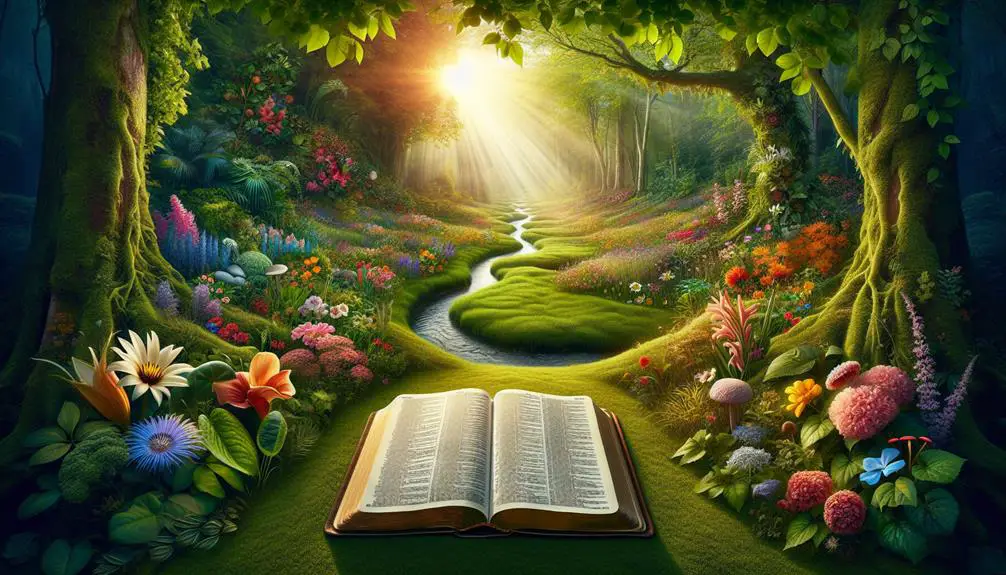
Is Mother Nature in the Bible
When you scroll through the ancient texts of the Bible, you won't find 'Mother Nature' amidst its parchment pages, a term that feels out of place in its ancient context.
Yet, as you explore biblical depictions of nature, stewardship, and creation care, you'll uncover layers of symbolism and divine presence woven into the natural world. The Bible speaks volumes about humanity's relationship with the earth, offering insights that might surprise you.
So, why not embark on a journey to uncover whether the essence of Mother Nature resonates within these sacred texts? The answer might redefine your understanding of spirituality and environmental stewardship.
Key Takeaways
- The Bible depicts nature as a manifestation of divine presence, not specifically as "Mother Nature."
- Biblical narratives emphasize stewardship and care for creation, aligning with the principles of respecting and protecting the environment.
- Nature's symbolism in scripture, representing provision and renewal, mirrors some aspects attributed to the concept of Mother Nature.
- While "Mother Nature" is not a biblical term, the interconnectedness and sacredness of the Earth in biblical texts reflect similar reverence.
Biblical Depictions of Nature

How does the Bible portray the intricate relationship between humans and the natural world? In its pages, you'll find a complex narrative that weaves together themes of harmony, discord, and ultimate redemption. The Garden of Eden stands as the epitome of this relationship at its inception. Here, nature is depicted not just as a backdrop for human existence but as a partner in a divine covenant. This sanctuary represents an ideal of balance and mutual respect between humanity and the environment, a state of grace before the fall.
However, the Bible doesn't shy away from depicting nature's wrath as a response to human actions. This isn't to suggest that nature acts with malice, but rather, it reflects a broken harmony. The biblical narrative often uses natural disasters as metaphors for spiritual and moral lessons, underscoring the belief that our actions have consequences that ripple through the natural world. It's a powerful reminder of the interconnectedness of all creation and the responsibility that comes with it.
This portrayal invites reflection on how we engage with the natural world, suggesting a path back to Eden, not through the garden's literal gates, but through a restoration of the balance and respect that once defined the human-nature relationship.
Stewardship and Creation Care

Reflecting on the biblical narrative's portrayal of nature, it becomes clear that humans are called to a role of stewardship and creation care, emphasizing our responsibility to maintain and restore the balance within the natural world. This concept is deeply rooted in green theology, which interprets scripture through an ecological lens, urging us to see the environment as a sacred trust.
- Ecological Repentance: A fundamental aspect of stewardship is recognizing and correcting our past mistakes. Ecological repentance involves a conscious shift away from practices that harm the earth towards actions that promote healing and sustainability.
- Sustainable Living: You're encouraged to adopt lifestyles and policies that ensure the well-being of the planet for future generations. This means reducing waste, conserving resources, and supporting renewable energy initiatives.
- Community Engagement: The call to stewardship isn't just an individual responsibility; it's a communal one. You're invited to participate in or initiate community projects that aim to protect and restore local ecosystems.
In embracing these principles, you're not only aligning with the biblical call for creation care but also contributing to a more sustainable and just world. This reflective approach fosters a deeper connection with the environment, urging a collective move towards ecological harmony.
Symbolism of Earth in Scripture
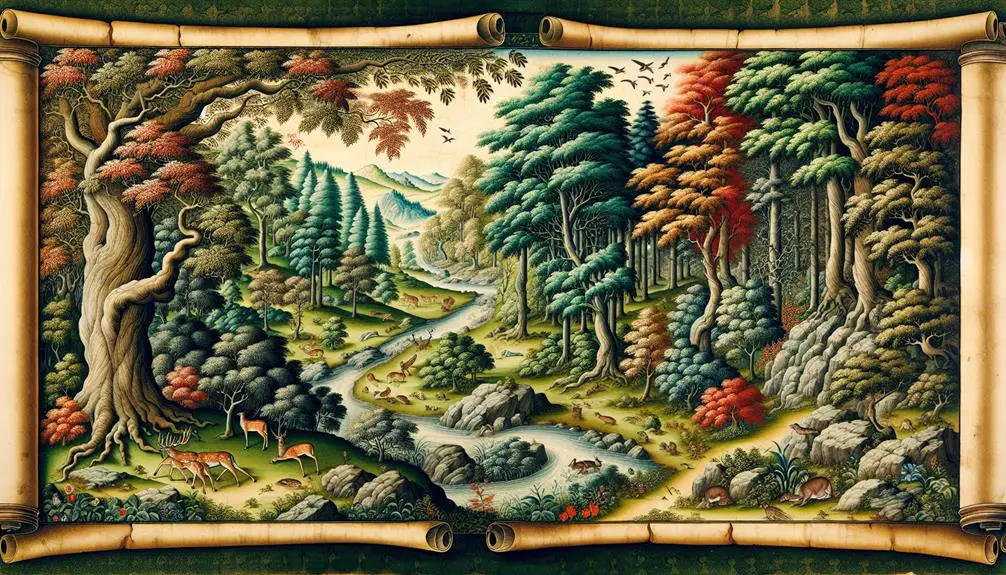
Throughout Scripture, the Earth is richly symbolized, often representing God's provision and the foundation of all creation. This depiction isn't accidental; it's deeply woven into the fabric of biblical texts, reflecting an understanding of the Earth's fertility and its critical role in human and non-human life alike. The symbolism extends beyond mere sustenance, embodying a divine promise of renewal and sustenance.
In the context of Creation myths, the Earth's portrayal is multifaceted. These narratives don't just recount the origins of the physical world; they offer profound insights into the nature of divine-human relationships. The Earth, in these accounts, isn't a passive backdrop. Instead, it's an active participant in the divine drama, responding to God's commands, yielding plants and animals, and providing a home for humanity. This dynamic interaction underscores the Earth's significance, not merely as a resource but as a sacred space imbued with divine purpose.
Analyzing these symbolic representations, you're invited to see beyond the literal soil and water. Instead, you're encouraged to recognize the Earth's fertility as a testament to divine creativity and care—a theme that resonates throughout the biblical narrative, inviting reflection on our place within the broader tapestry of creation.
Prophetic Messages on Nature
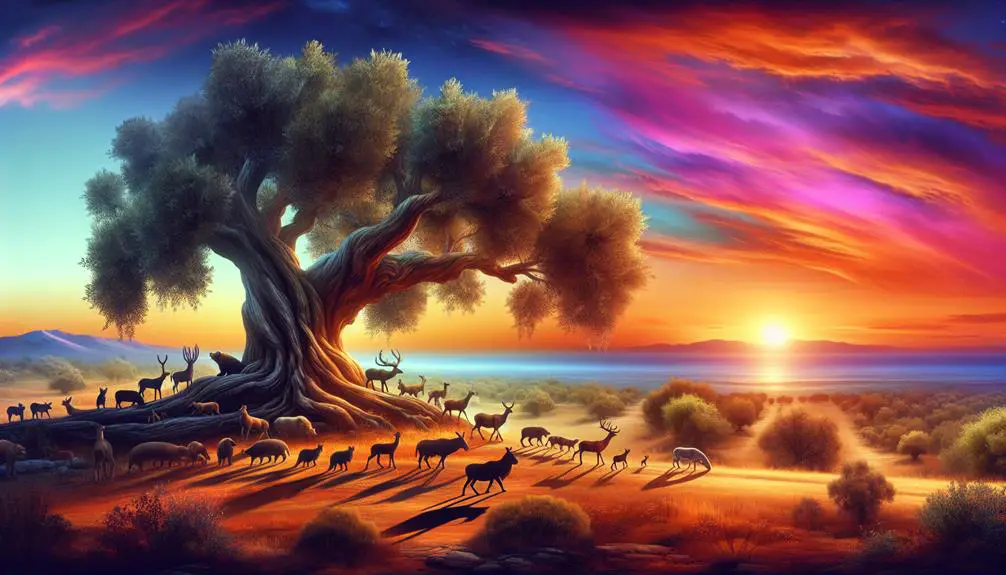
Within the tapestry of biblical narrative, prophetic messages on nature serve as stark reminders of the intertwined destinies of humanity and the Earth. These messages, often steeped in environmental warnings and apocalyptic imagery, urge a reflective consideration of our actions towards the planet.
- Environmental Warnings: Scriptures teem with cautionary tales where nature's fury is unleashed as a direct consequence of human folly. From floods to famines, the texts suggest a divine displeasure towards environmental mismanagement and exploitation, underlining the idea that our well-being is deeply connected to the health of our planet.
- Apocalyptic Imagery: The use of vivid, often terrifying images of environmental collapse serves not just as a prediction but as a warning. This imagery, while stark, is meant to shake humanity into awareness, urging an immediate reevaluation of our environmental stewardship.
- Moral Responsibility: Through these prophetic messages, the biblical narrative posits that caring for the Earth isn't optional but a moral imperative. It's a call to action that compels us to reconsider our environmental impact and to strive towards a more sustainable coexistence with nature.
In contemplating these messages, you're invited to reflect on the role that each of us plays in either contributing to or alleviating the environmental challenges that face our world.
Divine Presence in the Natural World
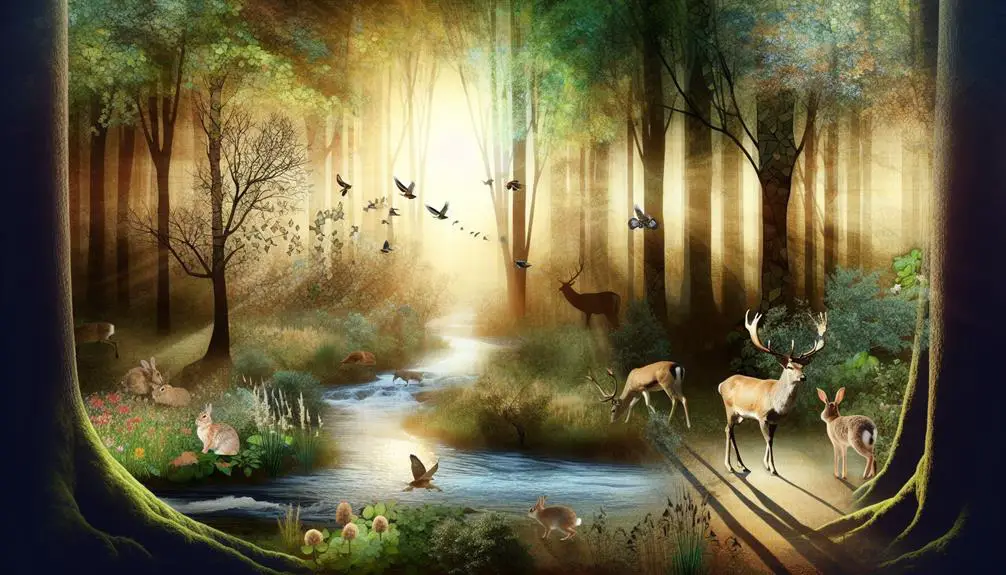
The Bible often portrays nature not merely as a setting or backdrop but as a manifestation of divine presence, inviting you to discern spiritual truths through the natural world. This perspective aligns closely with the principles of green theology and ecological spirituality, which emphasize the interconnectedness of all creation and the divine spark within the natural world. You're encouraged to see beyond the surface, recognizing that every leaf, river, and mountain is imbued with spiritual significance, forming a sacred text that mirrors the written Word.
Delving deeper, this view challenges you to reconsider your relationship with the environment. It's not just about stewardship or conservation; it's a call to a profound spiritual awakening to the divine presence in the natural world. Through this lens, acts of environmental care become acts of worship and communion with the divine.
Reflecting on these themes, it becomes clear that the Bible's portrayal of nature serves as a foundation for a richer, more nuanced understanding of ecological spirituality. This approach invites you to engage with the natural world not just as a resource to be managed, but as a sacred space that nurtures your spiritual journey, encouraging a deeper connection with the divine.
Frequently Asked Questions
How Has the Concept of Mother Nature Evolved in Religious and Secular Contexts Outside of the Bible?
The concept of Mother Nature has significantly evolved in both religious and secular contexts, influenced by pagan beliefs and cultural symbolism.
You'll find that pagan influences have woven the reverence for nature into various traditions, portraying Mother Nature as a powerful, nurturing force.
Cultural symbolism further enriches this evolution, embedding the idea of Mother Nature into art, literature, and folklore, reflecting humanity's changing relationship with the environment and its deeper understanding of ecological interdependence.
Are There Specific Biblical Figures Who Can Be Seen as Embodying the Characteristics of Mother Nature?
You won't find 'Mother Nature' explicitly in the Bible, but figures like Eve and wisdom personified in Proverbs echo her traits, juxtaposing ancient Goddess Worship with Creation Myths.
Eve's role in humanity's origin and wisdom's portrayal as a nurturing, guiding force reflect a nuanced, almost sacred connection to nature's essence.
This analysis invites you to reflect on how biblical narratives intertwine with the broader tapestry of human belief in the natural world.
How Do Different Christian Denominations Interpret the Absence or Presence of a Mother Nature-Like Figure in the Bible?
You'll find Christian denominations vary in interpreting the Bible's stance on ecological stewardship and divine femininity, akin to a Mother Nature figure.
Some see the Earth's care as a divine command, reflecting a form of divine femininity and stewardship.
Others focus on the absence of such a figure, emphasizing humanity's dominion over nature.
This divergence shapes how congregations engage with environmental issues, reflecting broader theological beliefs about the Earth and its care.
In What Ways Have Non-Biblical Religious Texts and Traditions Influenced the Contemporary Understanding of Mother Nature?
You'll find that non-biblical religious texts and traditions have deeply shaped our contemporary understanding of Mother Nature through pagan influences and cultural syncretism.
These ancient beliefs, often rooted in nature worship and the personification of natural forces, have merged with modern perspectives, reflecting a complex interplay between different religious ideologies.
This blending has enriched our concept of Mother Nature, illustrating how historical and spiritual narratives evolve and influence each other over time.
How Do Modern Environmental Movements Reconcile the Biblical View of Dominion Over Nature With the Concept of Mother Nature as a Protector and Nurturer of the Earth?
You're walking a tightrope, balancing biblical dominion with honoring Mother Nature. Modern environmental movements navigate this by reinterpreting dominion interpretations, not as exploitation but as stewardship.
By weaving environmental ethics into their fabric, they argue for a protector role, aligning with the nurturing aspect of Mother Nature.
This reflective and analytical approach reshapes the conversation, turning dominion from conquest to care, marrying ancient texts with contemporary environmental concerns.
Conclusion
In essence, the Bible doesn't personify nature as 'Mother Nature,' yet it deeply acknowledges the sanctity of the earth. It's clear that you're called to be stewards, caring for creation as a precious gift.
Through scriptures, the earth's symbolism and divine encounters in nature are profound. 'As above, so below' reflects this connection, urging a harmonious relationship with nature.
Reflecting on these biblical insights encourages a more thoughtful, sustainable interaction with the world, aligning actions with divine wisdom.

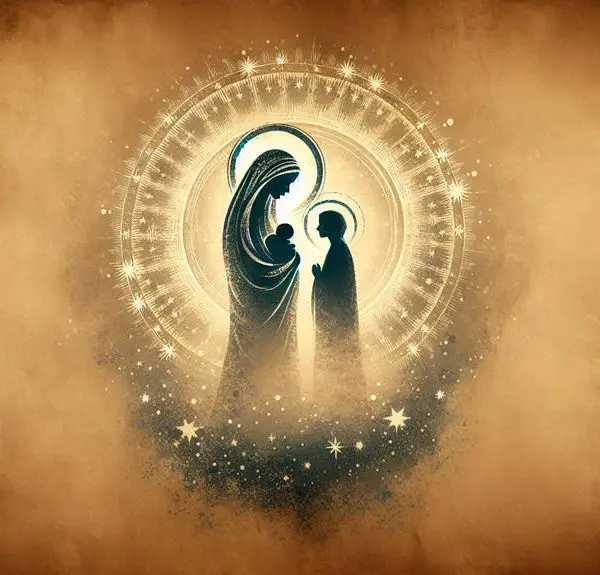
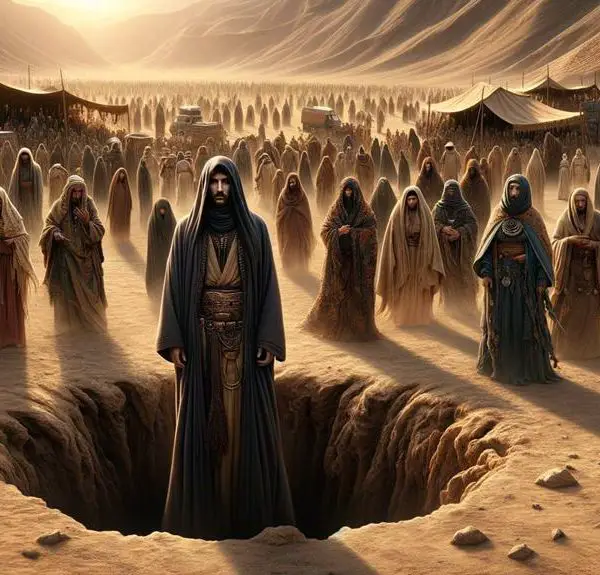
Sign up